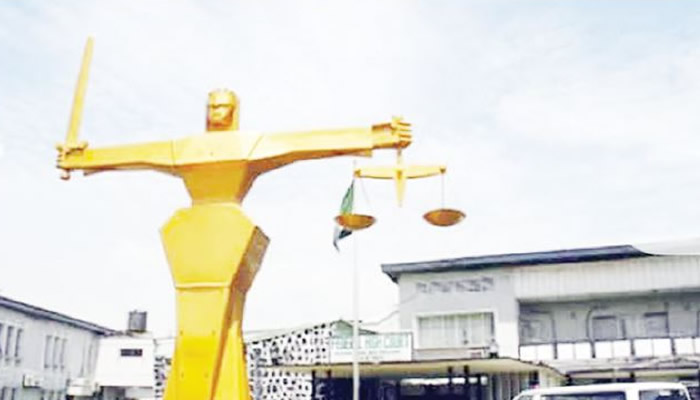
In response to a Federal High Court order in Lagos, the Lagos State Government has been tasked with conducting a detailed investigation into the tragic death of Pelumi Onifade, a 20-year-old journalist who was apprehended by the police during the #EndSARS demonstrations in 2020 and later discovered deceased in a mortuary.
Furthermore, the court has instructed the government to conduct a coroner’s inquest to determine the cause of death and hold accountable those responsible for the untimely passing of the journalist.
A statement issued by the Communications Officer at Media Rights Agenda, Idowu Adewale, revealed that the ruling was made by Justice Ayokunle Olayinka Faji in a lawsuit brought by the MRA against both the police and the state government.
Justice Faji concurred that the Chief Law Officer of the government could not conduct an inquest without having access to a duplicate of the case file. However, he emphasized that Section 74 of the Administration of Criminal Justice Law of Lagos State empowers the Attorney-General to request a case file from the Commissioner of Police.”
Although the court dismissed five of the allegations leveled by the MRA against the police due to lack of supporting evidence, Justice Faji acknowledged that the Attorney-General did not refute any of the facts presented in the MRA’s affidavit. The Attorney-General’s counsel also committed to conducting an inquest during the oral arguments.
On August 4, 2021, a Lagos-based lawyer named Mr. Charles Musa filed an originating summons on behalf of the MRA against the Lagos State Commissioner of Police, the Inspector-General of Police, and the Attorney-General of Lagos State.
The lawsuit sought to declare the shooting of Onifade in Oko Oba, Lagos State, by police agents, unconstitutional and a violation of his fundamental rights as guaranteed by relevant laws.
The MRA urged the court to issue three directives: to launch a transparent investigation into the circumstances of Onifade’s death, to conduct a coroner’s inquest to establish the cause of death, and to identify and prosecute those accountable for his demise.
In his ruling, Justice Faji noted that while the Commissioner of Police and the Inspector General of Police were served with the summons and other legal documents, they failed to respond to the allegations.
He observed that the MRA’s Programme Officer, Mr. John Gbadamosi, who provided the supporting affidavit, did not witness the relevant facts in the case, and there was a lack of documentation to support the claim that Onifade’s body was placed in a mortuary.
Furthermore, he pointed out that none of the deceased journalist’s family members filed any evidence related to their interactions with the police, resulting in the dismissal of the claims against the police due to insufficient evidence.
While commending the Office of the Attorney-General of Lagos State for its involvement in the case, Justice Faji highlighted the Attorney-General’s obligation to conduct an inquest into the circumstances surrounding Onifade’s death.
The court emphasized that the Attorney-General, although not accused of being involved in the alleged killing, has a responsibility to investigate and prosecute anyone found culpable in the journalist’s death.
Justice Faji directed the Attorney-General to take necessary actions to investigate and conduct a coroner’s inquest to determine the cause of Mr. Onifade’s death and pursue legal action against those accountable for the tragedy, as concluded in the statement.
